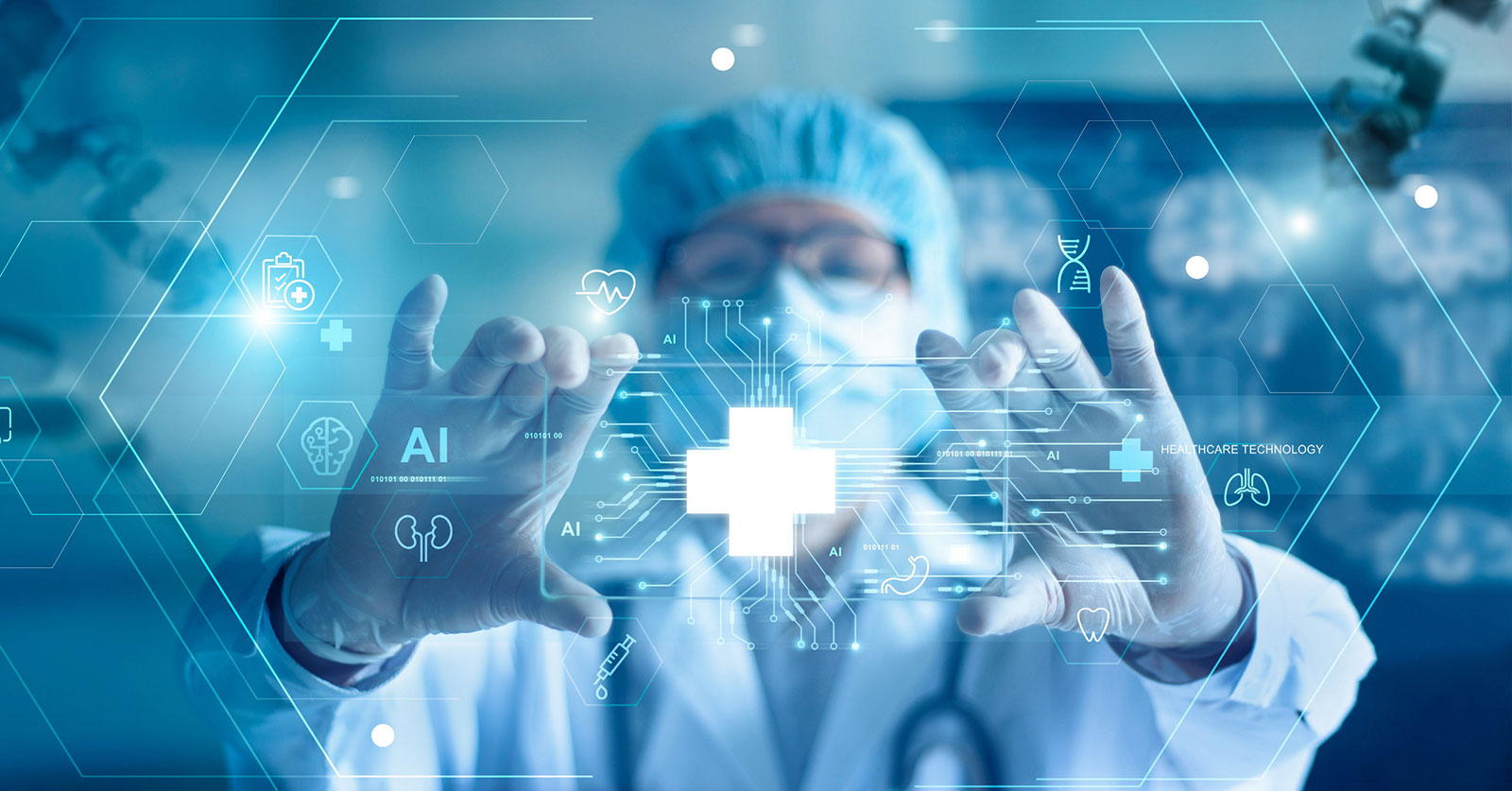Technology has been a constant catalyst for change, driving advancements that have reshaped patient care and medical practices. From the early days of electronic health records to the recent surge in telemedicine. Take this number for example: 78% of adults who own smartphones gain more equitable and accessible healthcare, extending to those in medically underserved areas. Technology’s integration into healthcare has been relentless.
At their core, large language models (LLMs) are advanced AI systems capable of interpreting and generating human-like text, making them uniquely suited for complex tasks that require a deep grasp of language and context. LLMs can democratize medical knowledge, facilitate access to information, assist in medical transcription, and help healthcare professionals stay updated with the ever-expanding body of medical research. They can even deliver tailored health advice based on medical histories and lifestyle choices.
Understanding LLMs
LLMs represent a quantum leap in the field of artificial intelligence, especially in their ability to process, interpret, and generate human language. These models, which include notable examples like GPT-3, are trained on vast datasets comprising a wide range of human discourse, enabling them to perform tasks with remarkable accuracy. The prowess of LLMs lies in their deep learning algorithms, which allow them to analyze patterns in data and make predictions about language—everything from composing a simple email to writing complex code that runs our most powerful systems.
The development of LLMs marks a significant departure from the traditional pre-trained language models (PLMs). Earlier models often relied on rigid rule-based systems, limiting their scope to specific, pre-defined tasks. LLMs, however, leverage their extensive training to adapt to new tasks and contexts without needing explicit programming for each new application. This flexibility is crucial in healthcare, where nuances in language and the need for personalized responses are paramount.
Unlike traditional healthcare technologies that focused primarily on data storage, management, or straightforward diagnostic algorithms, LLMs introduce a level of interaction and adaptability that was previously unattainable. They can engage in meaningful dialogue, interpret patient queries, and even sift through medical literature to aid in evidence-based decision-making. This ability to interact and assist in real-time makes LLMs not just a tool for healthcare professionals but a virtual colleague capable of enhancing the quality of care.
Personalized medicine and improved patient care
Virtual health assistants, or VHAs, are powered by LLMs. They are redefining patient interaction and support in the healthcare sector. These VHAs—equipped with the capabilities of understanding and responding to human language—are transforming the way healthcare providers connect with and care for patients. Going beyond basic tasks and scripted responses, VHAs can engage in more complex and nuanced conversations, making them far more effective in a healthcare setting.
The distinction between traditional health assistants and VHAs is stark. Where earlier systems might have provided automated, one-size-fits-all responses, VHAs offer a level of personalization and understanding previously unheard of. They can interpret patient inquiries, provide relevant information, and even direct patients to appropriate care based on their inputs. This level of interaction is not just about convenience; it’s about providing a more empathetic and responsive healthcare experience. And studies seem to prove this too. OpenAI’s ChatGPT continuously ranked better in high-quality and more empathetic responses compared to human physicians.
Several pioneering VHAs are already making an impact in the market. For instance, mental health chatbots are offering immediate, accessible support to individuals. These chatbots can engage in therapeutic conversations, helping users manage anxiety or depression symptoms. Another example is VHAs used in hospitals and clinics, which assist in scheduling appointments, reminding patients about medications, or providing pre- and post-operative care instructions. These applications demonstrate the potential of VHAs to extend the reach and efficacy of healthcare services, making them an integral part of the patient care ecosystem.
Challenges and limitations
While LLMs and VHAs offer transformative potential in healthcare, they are not without their challenges and limitations. One of the primary concerns is the accuracy and reliability of these models in medical contexts. Some studies prove that GPT-4 can diagnose and triage with 97.8% accuracy, a number higher than physicians. However, there have been cases where conversations with AI chatbots have resulted in dire consequences for the medically vulnerable, proving that constant monitoring by a human actor is still necessary to oversee performance in medical settings.
LLMs are trained on vast datasets, but these datasets may not always include the specialized knowledge required for certain medical fields or the nuances of rare diseases. This can lead to gaps in knowledge or even incorrect information, which in healthcare can have serious consequences.
Another major concern revolves around ethical considerations. LLMs operate based on the data they are trained on, which can inadvertently include biases. In healthcare, where decisions can be a matter of life and death, such biases are unacceptable. It’s crucial to continuously evaluate and update these models to ensure they are free from bias and are making decisions in an ethical and unbiased manner.
An illustrative example of a limitation can be seen in the use of LLMs in emergency medicine. In high-stakes, fast-paced environments, the nuanced judgment of a human healthcare professional is critical. While LLMs can provide support in terms of information retrieval and patient history analysis, they currently cannot replicate the complex decision-making or the emotional sensitivity required in these scenarios.
Furthermore, ongoing research and development are essential to address these challenges. This involves not just technological advancements but also regulatory frameworks to guide the safe and ethical use of AI in healthcare. Collaborations between tech experts, healthcare professionals, and regulatory bodies are key to navigating these challenges and ensuring that LLMs contribute positively to healthcare outcomes.
The future of healthcare with LLMs
The advancements we’re witnessing today are just the beginning. Predictions for the future include more sophisticated VHAs capable of even more nuanced interactions, better diagnostic tools, and highly personalized treatment plans.
One of the most exciting prospects is the potential for LLMs to democratize healthcare. By providing access to high-quality medical advice and support through VHAs, LLMs can bridge the gap in healthcare accessibility, particularly in under-served or remote areas. This could lead to a significant reduction in healthcare disparities and a more equitable distribution of healthcare resources.
Moreover, ongoing research and development in LLMs promise continuous improvements in accuracy, reliability, and ethical decision-making. This involves not just technological advancements, but also a deeper understanding of the ethical and social implications of AI in healthcare. Collaborations between AI developers, healthcare providers, and policymakers will be crucial in shaping a healthcare landscape that is both technologically advanced and ethically sound.
Unlike previous technological advancements, LLMs have the potential to fundamentally alter how we interact with healthcare systems, making personalized care more accessible and efficient. As we stand at the brink of this transformation, it is crucial to understand the implications, challenges, and opportunities that LLMs present in reshaping the future of healthcare.











